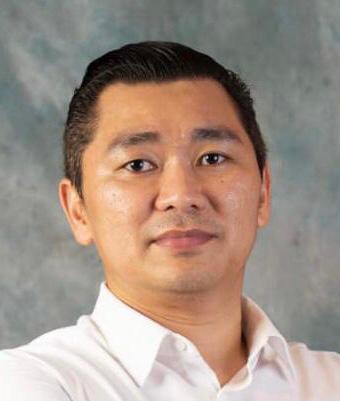By Nelson W. Angang
Secretary General of UPKO,
Ahli Dewan Negara
KOTA KINABALU: It was recently reported there are views that allocating more than one third, or 35%, of the Dewan Rakyat seats to Sabah and Sarawak would be a major electoral distortion as the combined population of the two territories would not justify it. It must be emphasised even though the population of a given constituency is a consideration, but it is not the sole criterion. For example, for the parliamentary constituency in the federal territory, the parliamentary constituency of Seputeh has 124,805 voters as compared to Putrajaya’s of only 42,881 voters. The highest numbers of voters in a single parliamentary constituency in Malaysia are in Bangi with 303,430 voters and the lowest in Lenggong with 36,950 voters (election commission electoral roll as of August 2022). There are other considerations when creating new parliamentary constituencies, such as its size, having regard to the greater difficulty of reaching electors in the country districts and disadvantages faced by the rural constituencies.
However, the call by Sarawak and Sabah to be allocated with more than one third of the Dewan Rakyat seat has more to do with the historical facts of how Malaysia came to being rather than the normal justification of an increase of its population in a given constituency.
In the Report of the Commission of Enquiry, North Borneo and Sarawak 1962, popularly known as the Cobbold Report, it was the recommendation by the representative from the Federation of Malaya and the Commission that in fixing the quota for representation in the federal parliament at that time, the election commission should take into account not only the population of the territories but also their area, their distance from the centre, and their potentialities. There were concerns coming from North Borneo (Sabah) and Sarawak at the time of the possibility that after the federation of Malaysia has been established, the federal constitution might be amended by the Federal Parliament in Kuala Lumpur to North Borneo and Sarawak disadvantage.
This was the same concern reminded to us by Sarawak Premier Abang Johari Openg as to the possibility that the Federal Constitution may be amended, which will take away the special rights of Sabah and Sarawak as enshrined in the MA63. Such concern has its basis when, for example, in 1994, an amendment to the Federal Constitution was made that effectively removed the power of the Sabah and Sarawak heads of state to appoint a judicial commissioner. This has been debated and acknowledged in one of the previous Dewan Rakyat sittings, and this matter is currently being negotiated in the MA63 technical committee for the return of such a right. It is true that the 1994 constitutional amendment was supported by Members of the Dewan Rakyat from Sabah and Sarawak then after it was tabled by the Federal government, but we now live at a time that our leaders and the people of Sabah and Sarawak have greater understanding and awareness of the history, concerns, and hope in reaching the agreement that resulted in the creation of our country in 1963.
There are also arguments saying that more than one-third seats, or 35% of the total number of parliaments represented, were given to the 3 new territories then, North Borneo (16), Sarawak (24) and Singapore (15), and not to Sabah and Sarawak alone. This was stated in the Inter-governmental Committee Report (IGC Report). However, the IGC Report also never considered the possibility of a situation where Singapore exited Malaysia or that the 15 seats from Singapore were to be distributed to Malaya, giving the territories a two-thirds advantage. That is why it is important for everyone to know the reason for such an arrangement being made in the first place. To do so would be to understand and appreciate MA63, the IGC Report, and the Cobbold Commission Report.
This is not a matter of trust. If it is so, the same can be said about trusting Sabah and Sarawak to have the one third representation. I am confident and certain that the current government led by our Prime Minister understands and is committed to delivering what is due under the MA63. This was proven when several matters under the MA63 technical committee have been resolved and the negotiations on other matters are still ongoing.
But rather, it is about safeguarding the foundation upon which this country was built.
We never expected Singapore to leave Malaysia in 1965. I am also equally certain that nobody would have imagined when Malaysia was formed in 1963; 30 years later, in 1994, an amendment to the constitution would be tabled by the federal government and approved in parliament, taking away the power from the Governor of Sabah and Sarawak in appointing a judicial commissioner.
MA63 goes beyond the technical requirements or consideration of allocating federal seats to Sabah and Sarawak based on the population alone. MA63 is the reason why the federation exists. Our electoral system of first past the post exists because of MA63.
The recommendation by the Cobbold Commission that some form of guarantee should be provided whereby no amendment, modification, or withdrawal of whatever special powers of safeguards may be given can be made by the central government without the positive concurrence of the government of the state concerned should be the criteria that leads us towards becoming a successful nation as intended by our founding fathers.


